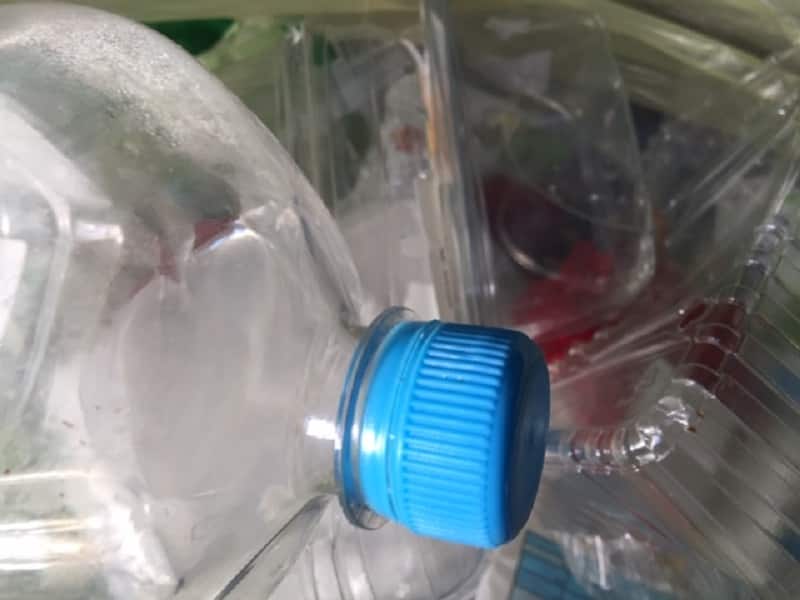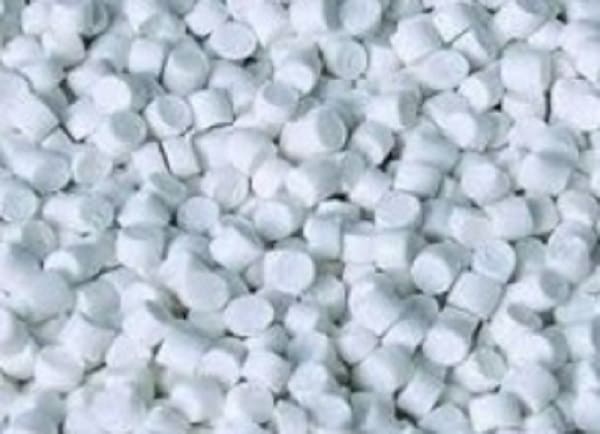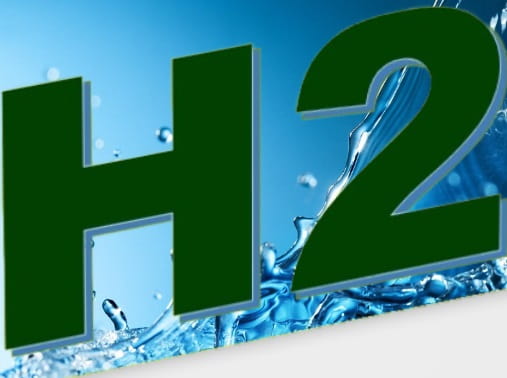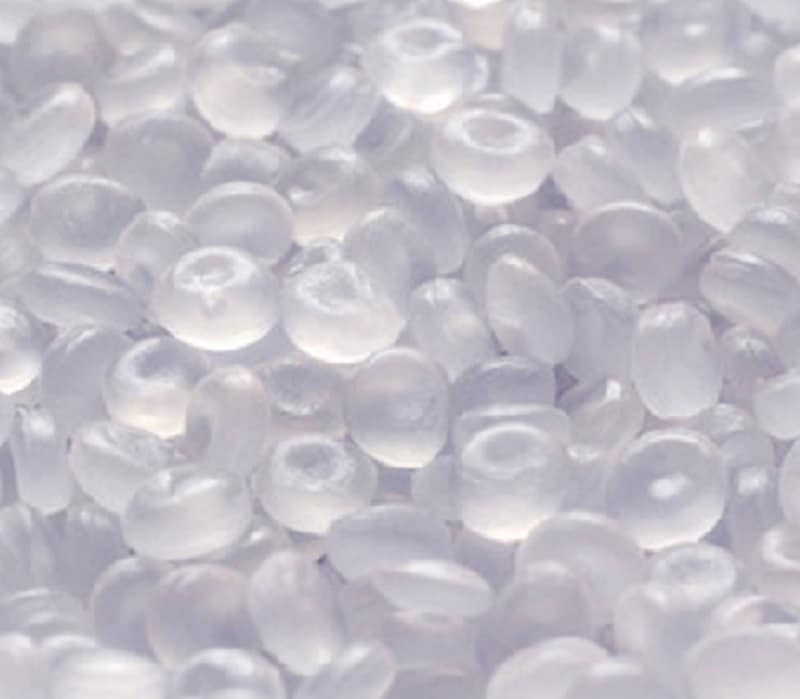Recycling-chain – PVC-Benzene-PP-PE 06-10-2022 - Arhive
Recycling-chain – PVC-Benzene-PP-PE
Crude Oil Prices Trend

-Europe recycling chain faces uncertain future
The only current certainty for the European recycling chain is uncertainty.
Uncertainty typically leads to nervousness, which in turn leads to volatility, as markets react to each fluctuation in underlying conditions to a degree they wouldn’t normally.
This uncertainty has come at a time when the chain would traditionally be looking to its next year volumes. Many players across the recycled polymers chain have said that forward planning at the moment is simply impossible.
On the one hand, macroeconomic conditions are weak and there is a growing threat of recession across Europe. Demand from non-packaging grades has fallen sharply in September across all recycled polymers—particularly demand from the key construction sector.
Comparatively, low virgin values are also encouraging a shift away from recycled materials in non-packaging grades – which typically work on a cost saving basis – while high energy costs have limited recyclers’ ability to reduce flake and pellet prices without risking negative margins.
Geopolitical shifts remain unpredictable given the ongoing conflict in Ukraine. Energy prices—and government measures to tackle energy prices—also remain difficult to forecast.
On the other hand, sustainability commitments from the packaging sector remain high, and there has been no real slowdown in consumption of packaging – for the time being.
The gap between fast moving consumer goods (FMCG) sustainability commitments – many of which are due to mature in 2025 – and available supply has seen recycled polymer markets decouple from virgin price movements and macroeconomic conditions in all packaging-dominated grades over the past few years.
Structural shortages are likely to become even more endemic if negative macroeconomic conditions persist – which appears likely – because this is likely to lead to greater hesitancy in investment.
Nevertheless, there has been increasing talk that some FMCG producers are beginning to reassess their sustainability commitments in light of the growing spread with virgin and amid recessionary fears.
One FMCG major confirmed this week that it was already having internal discussions with its finance department on whether it should stick to its sustainability commitments. At the moment, concerns over mid-term availability if it were to step out of the market, and the favourability of deals when it were to step back in, have meant remaining with recycled material. Discussions are expected to intensify should the macroeconomic situation significantly worsen.
High energy costs also bring the risk of potential bankruptcies in the chain, which would make sustainability targets increasingly harder to achieve, as industry association Packaging Recyclers Europe (PRE) warned on September 22.
The recycling industry typically operates on narrow margins and with smaller cash reserves, placing them at greater risk of bankruptcy in any sustained downturn. Currently, the market is faced with the spectre of rising costs and falling demand.
According to a PRE survey referred to in the statement, average energy costs for recyclers have increased from a typical level of around 15-20% of production costs—minus labour and maintenance—to a current average level of 70%.

-September contract price of PVC in the US decreased
Contract prices for polyvinyl chloride (PVC) fell in the U.S. in September amid weakening demand, ICIS reported.
Inflation has prompted the Federal Reserve to raise the federal funds rate four times this year, raising the cost of home purchases and muting housing activity. Mortgage rates reached 7% last week, almost double that at the beginning of the year.
The result was a slowdown in residential activity and a dampening of consumer confidence, which weakened demand for PVC for the production of building materials, a demand sector for most PVC sales.
Producers are looking to expand export sales to maintain high utilization rates of chlor-alkali production and achieve the high net profits currently required for chlorine and caustic soda.
This has led to an even bigger drop in global prices, which have already fallen due to restrictions in China, a strong dollar muting business in Latin America, Africa and elsewhere, and high energy prices in Europe.
This has affected the U.S. market and caused some buyers to worry about a massive economic downturn.
Ethylene commodity contracts for September are expected to face downward price pressure after spot prices declined during the month.
Average contract prices fell by 5 cents per pound (USD110.23 per tonne) to a new range of 106-108 cents per pound for pipe material and 108-110 cents per pound for general-purpose resins.
Earlier it was reported that Brazil reduced anti-dumping duties on PVC imports from the United States and Mexico. Brazil has lowered anti-dumping duties (ADD) on imports of polyvinyl chloride (PVC) from the U.S. and Mexico, the second such move this year that is likely to expand U.S. exports to the region and provide domestic buyers with more competitive pricing in a market that is one of the most expensive in Latin America.

-Dispelling the myths about hydrogen and heating
Jan Rosenow on his research that found the gas to be unsuitable for heating homes
The letter from Prof Gordon E Andrews responding to an article covering my recent research on hydrogen and home heating contains a number of errors 28 September). First, he states that the International Energy Agency and the UK government believe that “hydrogen should be a major part of the road to net zero carbon, as it is the only way to decarbonise heating in the next 20 years”. That is incorrect. In the IEA’s Net Zero 2050 report, hydrogen makes up less than 2% of energy demand in buildings in 2050. And, as my study showed, all independent studies do not see a significant role for hydrogen.
Prof Andrews says that it is impossible to retrofit the 24m properties heated by gas with heat pumps in a sensible timescale, stating that 27,000 heat pumps are installed every year. But the government has a target for 600,000 heat pumps to be installed every year, as outlined in the Heat and Buildings Strategy.
The letter also states that such a conversion to “green hydrogen” would increase bills by 4.5%. However, this claim is misleading for two reasons. First, the 4.5% increase would be paid by all UK gas consumers to fund hydrogen in Leeds only. The costs behind the 4.5% also refer to “blue” hydrogen, produced from unsustainable fossil gas, which has clearly increased in price since the 2016 report.
Finally, Prof Andrews says that the IEA shows that green hydrogen would cost 3p/kWh by 2030.

-October contract price of ethylene in Europe decreased by EUR45 per ton
The contract price of ethylene in Europe for October shipments has been agreed at EUR1,260 per tonne, down EUR45 a tonne from the previous month, ICIS said.
The contract price was approved on the terms of FD NWE (with delivery to North-West Europe).
Two manufacturers and two non-integrated consumers directly confirmed the calculation.
The cost of naphtha raw materials was on average lower in September compared to August.
The base contract price is considered to be fully established when it is directly confirmed by at least two producers and two consumers.
Earlier it was reported that the contract price of ethylene in Europe for September supplies was agreed at the level of EUR1,305 per ton, which is EUR120 per ton lower than the level of the previous month.
∼∼∼∼∼∼∼∼∼∼∼∼∼∼∼∼∼∼∼∼
-A high-performance catalyst that dissolves polyester and realizes chemical recycling
Professor Kotohiro Nomura’s research group at Tokyo Metropolitan University developed two high-performance catalysts for efficient synthesis of value-added chemicals (fine chemicals, monomers) from polyester(1)and vegetable oil(2). Their major finding is that simply heating a mixture of polyester and alcohol could afford raw materials exclusively.
Plastic waste is an enormous environmental problem that needs to be solved immediately, but the amount of plastic being reused (material recycling) is still low, especially chemically recycled into raw materials (called chemical recycling(3)) is currently extremely low. Polyesters, which consist of repeated “ester bonds”(1) formed by the reaction of carboxylic acid and alcohol, is used in plastic bottles and clothing. If these ester bonds could be completely severed, polyester could be converted back into its raw materials. However, conventional methods require high temperatures and large amounts of acidic and/or basic materials. Therefore, a simple, inexpensive, and environmentally friendly method is desired.
The research group developed catalysts to facilitate the synthesis of high value-added chemicals (i.e., fine chemicals) such as the raw materials for polymers, detergents, and cosmetics from inedible vegetable oils, and discovered two types of high-performance catalysts: a calcium oxide catalyst and a titanium catalyst. These catalysts are effective in breaking down polyester based on the same chemical reaction (transesterification) and have been shown to be capable of converting polyester into raw materials with nearly 100% selectivity.(4)
Calcium oxide, which is cheap and easy to acquire, has a proven track record in industrial applications. However, this research group’s idea of applying a catalyst used for converting vegetable oil esters directly as a polyester cracking catalyst is unprecedented in the research literature. Moreover, it’s implementation is inexpensive with a low environmental impact. Furthermore, because these titanium catalysts with their excellent catalyst performance enabled a wide range of applications, strongly suggesting a promise in the synthesis of polymer materials and various fine chemicals from vegetable oil, as well as upcycling(5) from plastic waste to high value-added chemicals.
This research was conducted under the auspices of JST’s Strategic Basic Research Programs and Strategic International Collaborative Research Program (SICORP). The research involving the calcium oxide catalyst was conducted in collaboration with Professor Boonyarach and Professor Kitiyanan of the Petroleum and Petrochemical College, Chulalongkorn University, Thailand. Both serve as Thai co-investigators of an international joint research project in SICORP, which is supported by both JST and the National Science and Technology Development Agency of Thailand (NSTDA).
∼∼∼∼∼∼∼∼∼∼∼∼∼∼∼∼∼∼∼∼
-TotalEnergies announces EUR200 per tonne increase in PE and PP prices in October
TotalEnergies said in a letter to customers that its prices for all polyolefins have increased by EUR200 per tonne since Oct. 1, ICIS reported.
The Sept. 30 letter said Total would “review the situation and make adjustments monthly.”
Unlike other recent announcements, this figure includes not only an increase in the cost of electricity, but also rising in price additives, raw materials and transportation costs. Thus, this is the highest price for October.
Other suppliers have independently announced electricity surcharges, and sentiment on the part of suppliers appears to have changed; suppliers are looking to stem the price drop that began in May.
Total said in its letter that spending growth and inflation had become too high.
Buyer reactions have been mixed, with some players receiving several emails asking for triple-digit increases and agreeing that prices are likely to rise.
Other players were less convinced, as demand was still not impressive, and not all suppliers followed the general trend to demand significant increases.
Total produces a wide range of polyethylene (PE) and polypropylene (PP) in several locations across Europe.
Earlier it was reported that TotalEnergies on July 11 canceled the force majeure circumstances in relation to the supply of certain brands of polypropylene (PP), originally announced on April 29. So, TotalEnergies on April 29 suspended the production of polypropylene (PP) on line No. 9 in La Porte (La Porte, Texas, USA) due to technical failure. At this line with a capacity of 1.23 million tons of PP per year, a breakdown occurred at the reactor, which led to flaring.

-October contract prices of benzene in the US decreased
October U.S. benzene contract prices are down 28 cents a gallon from September to USD2.89 a gallon (USD868.85 per ton) on FOB Terms gulf of Mexico, ICIS reported.
Spot prices were lower from the previous month as the U.S. benzene market was overflowing with supply as a large amount of imported cargo was recorded in the summer, when U.S. benzene prices hit an all-time high. High U.S. benzene prices have weighed on styrene exports, leading to a slowdown in demand for derivatives, further exacerbating the buildup in supply.
Spot prices rose last week as demand began to rise. However, spot prices for benzene remain undervalued compared to the average five-year spread between benzene and West Texas Intermediate (WTI) crude oil futures.
Since reaching a record high in July, when contracts were set at USD6.82 per gallon, contracts have declined for three consecutive months.
Benzene is used to produce a number of intermediates that are used to create polymers, solvents, and detergents.
Benzene is the raw material for the production of styrene, which, in turn, is the main raw material for the production of polystyrene (PS).
∼∼∼∼∼∼∼∼∼∼∼∼∼∼∼∼∼∼∼∼
-Sidel commits to the circular economy by joining R-Cycle
The global packaging solutions company Sidel is now a member of R-Cycle, a community designing digital ‘product passports’ to accelerate the recycling of plastic packaging around the world.
Using an open tracing standard, R-Cycle allows gathering of information about the recycling-related properties of plastic packaging. These details, stored on a common data platform, can then be automatically accessed and recorded by any production machinery along the value chain, from packaging manufacturers and converters to the recycling industry. This ultimately enables waste-sorting lines to identify recyclable packaging and so help create recycling-friendly and pure materials for reprocessing into a wide range of high-grade plastic products.
Francesca Bellucci, Sidel’s Sustainability Portfolio Director, Product Innovation and Marketing, says: “Sidel recently joined R-Cycle because we want to continue playing a key role in bringing the circular economy to life. Having a global standard that connects partners from around the world across the plastic packaging lifecycle to record and retrieve all relevant packaging properties will hugely benefit product sustainability. It will improve manufacturing processes as well as the quality of recyclates, resulting in the implementation of a genuinely circular economy.”
Making recycling more effective
Currently, recyclable plastic packaging cannot be separated precisely enough from waste streams to achieve high-quality recycling, and this has been a significant factor in current low recycling rates – only 9% of plastic waste is ultimately recycled, according to OECD, Global Plastics Outlook, February 2022.
There are two acknowledged barriers to effective plastics recycling. One is creating more fully recyclable packaging, an area in which Sidel is helping customers advance by fostering PET adoption, the most recycled plastic material available to date. The other is in increasing the sophistication of the recycling processes, which is R-Cycle’s key focus.
R-Cycle will benefit manufacturers worldwide by improving process efficiency and product quality. Having precise information about source materials helps speed up production, and recording product properties adds value for their customers.
R-Cycle was developed by a number of technology companies and organisations from across the lifecycle chain of plastic packaging, and Sidel will contribute to further development, as a leading provider of solutions for packaging of beverages, food, home and personal care products.
The digital product passport will also help with compliance and in providing the information needed to meet both current and future requirements from customers and legislators, such as calculating carbon footprint, and in Extended Producer Responsibility (EPR), a policy approach to make producers responsible for the treatment or disposal of post-consumer products. R-Cycle also offers a viable solution to the European Union’s Circular Economy Action Plan, which seeks traceability of plastic packaging to ensure its recyclability, including tracking and managing information about resources, and the digitisation of product data.
How R-Cycle works
R-Cycle’s globally applicable open tracing standard permits seamless documentation stored on a common data platform that can be accessed by any production facility, from plastic film or injection/blow moulding machines to converting, and filling machines, through to waste sorting and recycling lines. It enables a material’s recycling-related properties to be captured and made retrievable via an appropriate marker such as a digital watermark or QR code on the packaging.
∼∼∼∼∼∼∼∼∼∼∼∼∼∼∼∼∼∼∼∼
